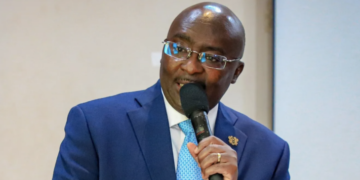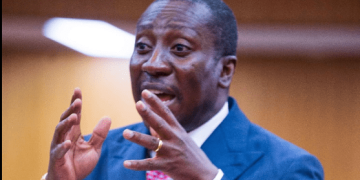I respectfully offer an opinion contrary to Hon. Haruna Iddrisu’s suggestion that all MPs going independent will fail to remain in Parliament, grounded in Ghanaian laws and constitutional interpretation.
While Article 97(1)(g) of the 1992 Constitution stipulates that an MP must vacate their seat if they leave the party on whose ticket they were elected or if they remain in Parliament as an independent candidate, it is crucial to emphasise that this provision applies only if an MP formally changes their political status while serving in Parliament.
The Constitution does not permanently prevent a former MP from contesting future elections as an independent candidate after vacating their seat during their term.
In the case of Andrew Asiamah Amoako, Speaker Prof. Mike Oquaye ruled that he vacated his seat upon leaving the NPP and contesting as an independent.
While this ruling was influential in Asiamah’s case, I disagree with the broader interpretation that expulsion or intent to contest as an independent candidate automatically triggers the vacation of an MP’s seat.
Andrew Asiamah Amoako did not resign from the NPP—the party expelled him. This is a critical distinction because Article 97(1)(g) of the 1992 Constitution focuses on voluntary actions by the MP, such as choosing to leave the party or remain in Parliament as an independent.
The article does not explicitly state that expulsion by a political party triggers the vacation of the MP’s seat. Therefore, in Asiamah’s case, I believe the NPP’s decision to expel him did not legally justify his automatic removal from Parliament.
If political parties are allowed to write to Parliament and expel MPs simply for flouting party rules, it would undermine Parliament’s independence. Parliament, as a separate branch of government, must retain its independence from political parties, and MPs must primarily serve their constituents, not be beholden to party leadership. An MP’s mandate comes from the people, not from the party, and their removal should be based on the Constitution, not internal party decisions.
Allowing parties to expel MPs from Parliament unilaterally would give them disproportionate control over their members. It could suppress dissent or punish MPs who do not strictly follow the party line. This would contradict the spirit of parliamentary independence and undermine the democratic principle that MPs are representatives of the people, not mere agents of their parties.
The Supreme Court’s decision in the Zanetor case reaffirmed the supremacy of the 1992 Constitution over internal party rules. Article 97(1)(g) clearly states that an MP must vacate their seat only if they choose to leave the party or declare themselves an independent MP. The Constitution does not mention expulsion by a party as a reason for vacating a seat.
Therefore, I argue that the NPP’s expulsion of Andrew Asiamah should not have triggered Article 97(1)(g). The article intends to address situations where an MP voluntarily changes their political status, not where their party expels them.
Parliament’s independence must be upheld, and any attempt by a political party to remove an MP from office should be subject to strict constitutional oversight.
Moreover, while Prof. Oquaye’s ruling carries weight, it should be seen as an interpretation rather than an absolute legal mandate. The Constitution’s wording is precise in focusing on the MP’s actions, not the party’s actions. Expelling an MP without their resignation or formal declaration of independence should not automatically result in the vacation of their seat.
Political parties do not have the constitutional authority to remove MPs from Parliament simply because they have flouted party rules. Parliament must remain independent, and MPs must be accountable primarily to their constituents. Article 97(1)(g) cannot be triggered by a party’s decision or an MP’s intent to run on a different ticket in a future election.



















































































